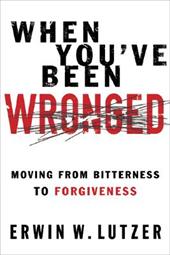In addition to symptoms and difficulties of
children from dysfunctional families, related to being raised and shaped in an unhealthy environment,
and to roles inherited by ACOA/ACDF
into adult life, their relationships with other people are often poisoned by absence of healthy boundaries or
violated boundaries, see examples below.
Violating Physical Boundaries
- Sexual abuse
- Physical abuse
- Entering a bedroom without asking, depending on relationship. There is a difference between married partners, children, friends and guests at oneí home. Guests may never enter a personís bedroom unless invited to show the bedroom remodel job or to put oneís coat on the bed. Where a spouse may not ask to enter their own bedroom, the children may need to
- Breaking in line in front of another
- Not cleaning up after oneself
- Wearing another's clothes or using any property without permission
- Disregarding time agreements, such as being late or early; pressuring a person to be ready earlier
- Not returning, or being slow to return, borrowed items
Violating Emotional/Mental Boundaries
- Asking personal questions where the relationship doesnít call for it
- Asking another to explain one's actions or viewpoint - calling on the other to justify oneself to the inquirer
- Giving unasked-for advice - telling someone else how to live his/her life, in general
- Telling another what one thinks of the other's behavior when it does not affect the speaker
- Listening to phone conversations
- Reading diaries, letters, etc
- Telling another what God wants that person to do
- Repeating confidential material whether the hearer promised confidentiality or not, but especially when confidentiality was pledged
- Feel someoneís elseís conscience, or emotional weight of the other personís problem
- Helping someone without checking first to see if he/she wants help
- Making demands rather than requests
- Pushing past another's "no" or any setting of limits
- Interrupting another while talking
- Smoking in front of others without securing permission
- Assumption of feelings - thinking we know what another feels or wants and perhaps taking action based on those assumptions without checking them out
- Being "honest" in a hostile way that justifies and covers up hostility
- Analyzing another person: telling another what he feels, why he feels as he does
Other Boundary Violations
- Trying to force grown children to live according to parents' desires and /or values
- Person A telling person B's business to person C
- Intruding at a gathering, such as joining others at a restaurant without being invited
- Moving in to live with another, or with parents, without permission
- Pursuing another person when she/he has given adequate signals that she/he has ended the relationship - romantic, friendly, or other-wise
- Taking charge of children when their parents are present, such as correcting the children. (If they are doing something destructive, it is the parents to whom one should speak rather than deal with the children)
- Sharing personal information about oneself without checking out if the hearer wants to hear it
- By inappropriate touch: in places the person doesn't want to be touched; at times the person doesn't want to be touched; in a manner the person doesn't want to be touched (including hitting, sexual handling, tickling)
- Asking excessive or inappropriate favors
- Telling another's story for them (especially if he/she doesn't want it told)
- Calling another by first name (when the relationship does not call for that)
- Treating another person in a patronizing or condescending manner
- Judging another
- Expecting a return for a favor done
- Indulging ourselves at the expense of another
- Creating triangles (trying to control one person through another)
- Using abusive language
- Gossiping
From Sara Hines Martin's book Shame on You!: Help for Adults from Alcoholic and Other Shame-Bound Families.
Broadman Press: Nashville, Tennessee 1990. pp. 80 - 83.



